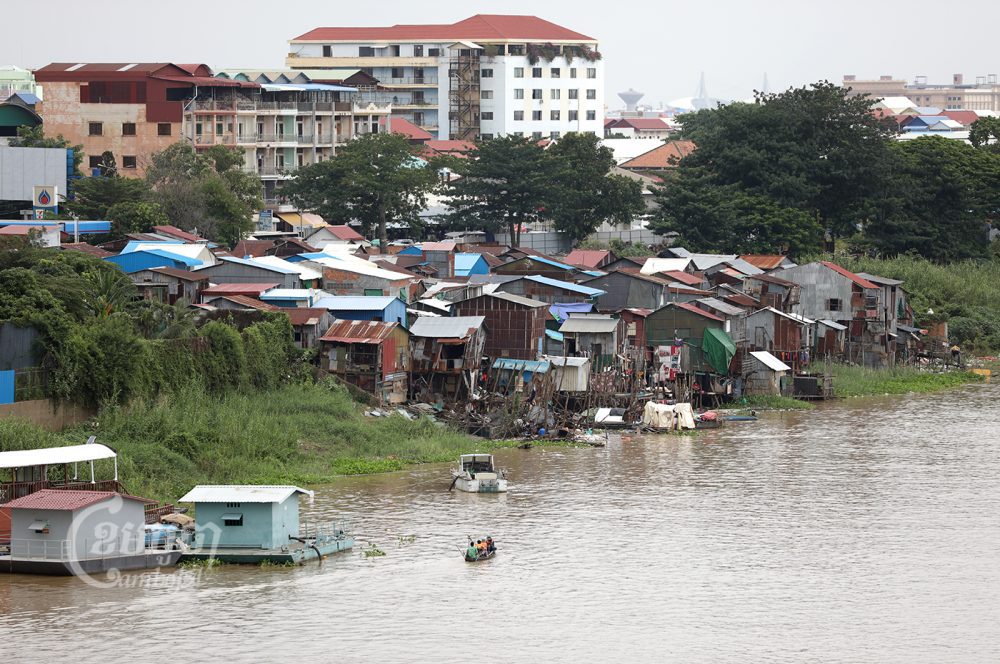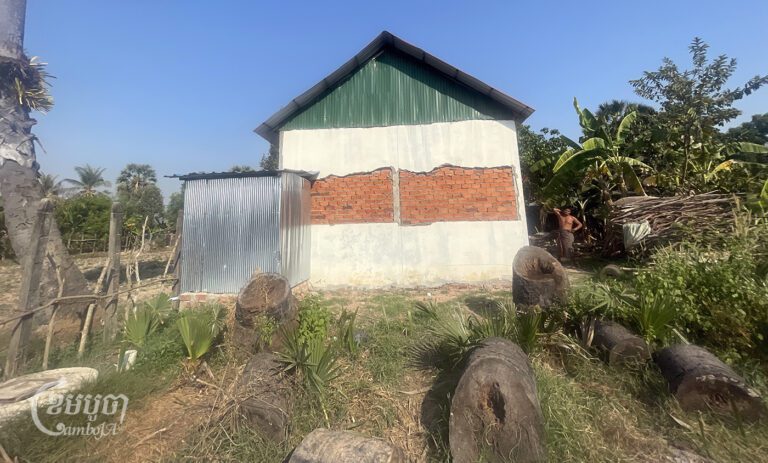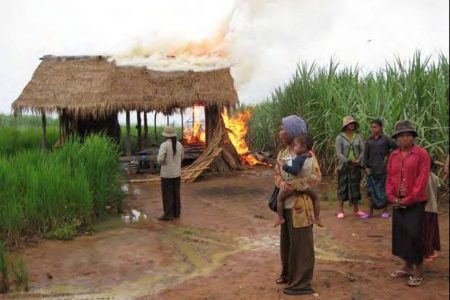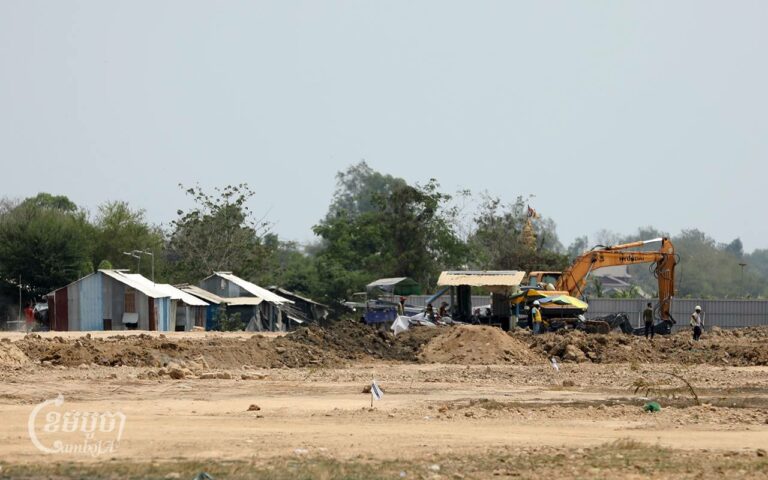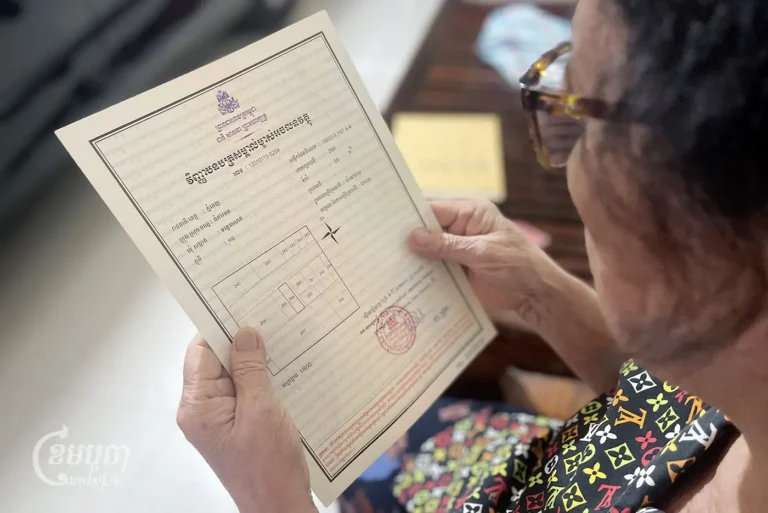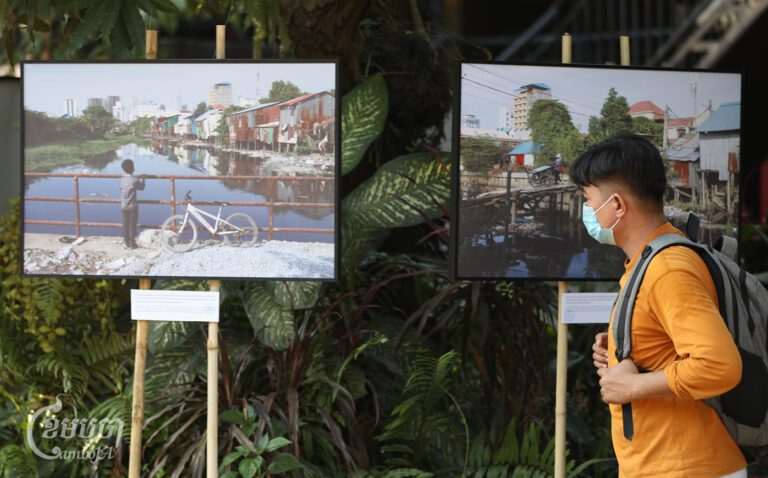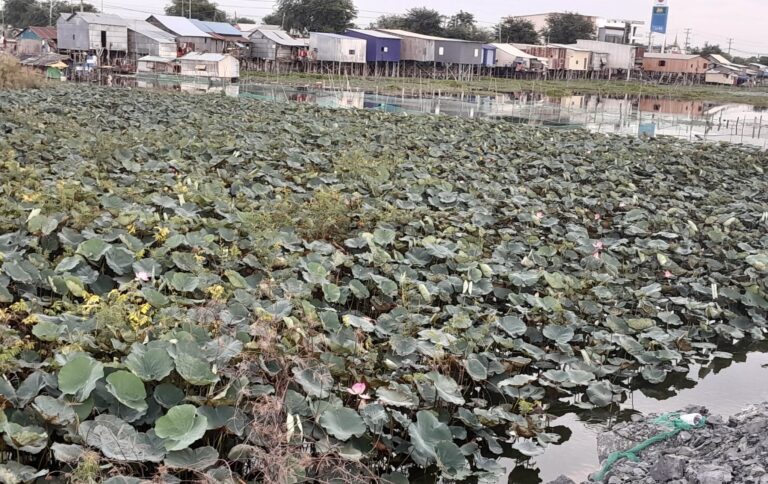After resisting relocation for months, Kim Heng began dismantling her home of four decades as she prepared to rebuild with the salvaged scraps of tin and wood at a new site far away.
Like the majority of her neighbors in Russei Keo district’s Phsar Toch village, Heng finally agreed in late September to relocate following months of pressure from authorities seeking to evict families living in waterfront homes just north of Chroy Changvar bridge in Toul Sangke I commune.
“I have lived here since 1981,” said Heng, 66. “I do not want to [leave] but I have no choice.”
Heng and her neighbors, who never received property titles for their homes on state-owned land, were vulnerable to displacement. They received eviction notices in July. While only 10 families initially agreed to relocate, authorities began demolishing homes and threatening to arrest residents for illegally occupying the area.
Approximately 80% of the 300 families living in Phsar Toch have now accepted land compensation in Prek Pnov district’s Samraong commune more than 10 kilometers away, according to community representative Sin Sokhuot.
Prach Seiha, deputy governor of Russei Keo district, confirmed that Phsar Toch residents will be relocated to Samraong but refused to provide further information.
Families reached agreements individually with district authorities and received new plots of land and financial compensation based on the size of their existing homes and land in Phsar Toch. They have not yet moved because their relocation site is still being prepared, Sokhuot added.
“There are some residents who refused to accept the land swap because they think they have enough money to build a new house,” Sokhuot said. “Therefore, they are asking for money to do business or find a new place to live by themselves.”
The Phsar Toch residents are being removed as part of a plan to beautify Phnom Penh’s waterfronts, said Reach Phavoeurn, commune chief of Toul Sangke I encompassing Phsar Toch.
Heng, one of the village’s longest-standing residents, said she already began taking apart her house after accepting an offer of $6,000 and two plots of land in Samraong comprising 4.2 meters by 18 meters each.
“I do not think it is enough for me to build a new house in the new place,” Heng said. “I want more compensation.”
She said she has already used the land title for one of her newly allocated plots in Samraong as collateral for a $5,000 bank loan to build a home there. Her children, who live with her in Phsar Toch, will likely have to rent rooms in the city to maintain their jobs.
Heng plans to bring her seven grandchildren to Samraong but worried they will be too far from their school and expressed concern for their safety in the isolated area. There were no lights along the road when she visited, she said.
Heng also wondered how she would be able to support her family in Samraong commune. Her main source of income in Phsar Toch came from selling drinks and using her home as a makeshift motor depot for village residents.
“I do not know what I can do to make a living there [in Samraong commune] as there is no market, and there are not many people besides 30 families of residents living there,” she said.
Am Sam Ath, Licadho operations director, said authorities should facilitate people in relocations and ensure they have access to the necessary amenities.
“It is just like starting over for them,” he said. “Therefore, the authorities should pay close attention and know what they need — building infrastructure such as a school, a hospital, and most importantly, financial support to help them start their new lives,” he said.
Awaiting relocation, Heng has already removed the back wall of her home. But, for now, she has kept the front facade to offer shelter in her final days at Phsar Toch.


